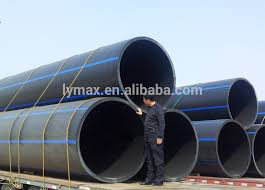TYPES OF SEWER
Following are different types of sewers according to material
- Asbestos Cement (AC) Sewer
- Brick Sewer
- Cement Sewer
- Cast iron (CT) Sewer
- Steel Sewers
- Plastic Sewers
1. Asbestos Cement (AC) Sewer
Asbestos Cement (AC) Sewers are manufactured from a mixture of cement and asbestos fiber. Asbestos Cement (AC) Sewers are suitable for carrying domestic sanitary sewage. Asbestos cement sewer is best as vertical pipe for carrying sullage from upper floors of multistory buildings (in two pipe system of plumbing).
Advantages of Asbestos Cement (AC) Sewer
- Smooth
- Light in weight
- Can easily be cut, fitted and drilled
- Durable against soil corrosion
Disadvantages of Asbestos Cement (AC) Sewer
- Brittle cannot withstand heavy loads
- They are easily broken in handling and transport.
2. Brick Sewers
Brick Sewers are made at site and used for construction large size sewer. Brick Sewers are very useful for construction of storm sewer or combined sewer.
Nowadays brick sewers are replaced by concrete sewer. Brick sewers my get deformed and leakage may take place. A lot of labour work is required.
Note: To avoid leakage the brick sewer should be plastered.
3. Cement Concrete
i. PCC – for dia upto 60 cm
Suitable for small storm drains. Not durable .
ii. RCC – for dia > 60 cm
They may be cast in situ or precast, resistant to heavy loads, corrosion and high pressure. These are very heavy and difficult to transport.
4. Cast Iron (CI) Sewers
These types of sewer are High strength and durability water tight. Cast Iron sewers can withstand high internal pressure and can bear external load. Cast Iron sewers are suitable for the following conditions.
- When the sewage is conveyed under high pressure
- When the sewer line is subject to heavy external load e.g. under railway line, foundation wall etc, below highways
- When there is considerable difference in temperature
5. Steel Sewers
steel sewers are Impervious, light, resistant to high pressure, flexible, suitable when;
- The sewage is carried under pressure
- The sewage has to be carried across a river under water
- The sewer has to cross under a railway track
- They are generally used for outfall and trunk sewers
6. Plastic Sewers
Nowadays PVC sewers are used for carrying sewage. Plastic sewers are resistant to corrosion.
Such types of sewer are light in weight, smooth and can be bent easily. But Plastic sewers are having high co-efficient of thermal expansion and cannot be used in very hot areas.






Comments
Post a Comment